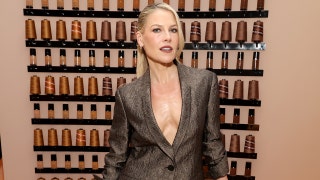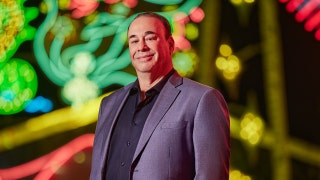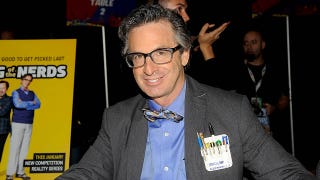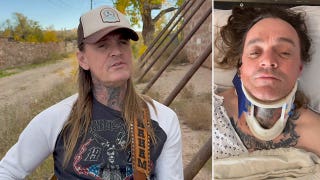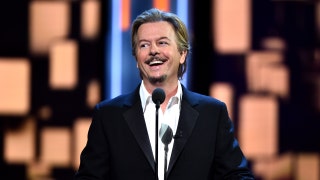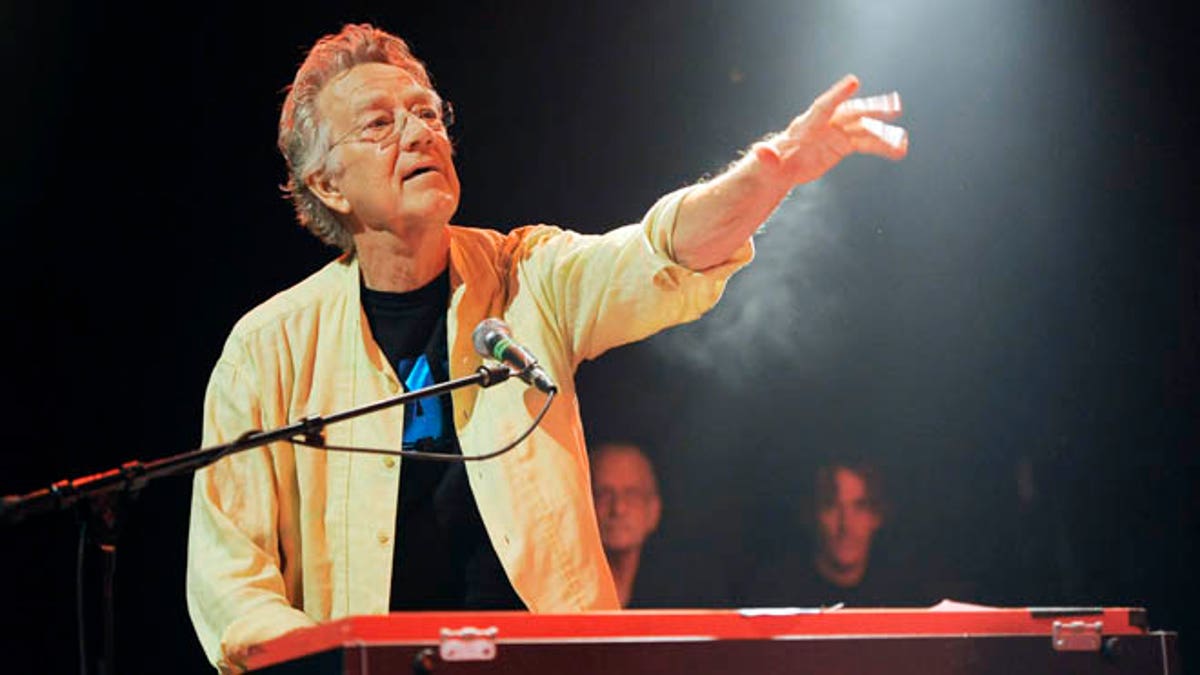
Aug. 16, 2012" In this file photo, Ray Manzarek of The Doors performs at the Sunset Strip Music Festival launch party celebrating The Doors at the House of Blues in West Hollywood, Calif. Manzarek, the keyboardist who was a founding member of The Doors, has died at 74. (AP/Invision)
Ray Manzarek, a founding member of the 1960s rock group The Doors whose versatile and often haunting keyboards complemented Jim Morrison's gloomy baritone and helped set the mood for some of rock's most enduring songs, has died. He was 74.
Manzarek died Monday in Rosenheim, Germany, surrounded by his family, said publicist Heidi Robinson-Fitzgerald. She said the musician's manager, Tom Vitorino, confirmed Manzarek died after being stricken with bile duct cancer.
The Doors' original lineup, which also included drummer John Densmore and guitarist Robbie Krieger, was only together for a few years and they only made six studio albums. But the band has retained a large and obsessive following decades after Morrison's death, in 1971. The Doors have sold more than 100 million records and songs such as "Light My Fire" and "Riders On the Storm" are still "classic" rock favorites. For Doors admirers, the band symbolized the darker side of the Los Angeles lifestyle, what happened to the city after the sun went down and the Beach Boys fans headed home.
Next to Morrison, Manzarek was the most distinctive-looking band member, his glasses and wavy blond hair making him resemble a young English professor more than a rock star, a contrast to Morrison's Dionysian glamour — his sensuous mouth and long, dark hair. Musically, Manzarek's spidery organ on "Light My Fire" is one of the most instantly recognizable sounds in rock history.
But he seemed up to finding the right touch for a wide range of songs — the sleepy, lounge-style keyboards on "Riders On the Storm"; the liquid strains for "The Crystal Ship"; the barrelhouse romps on "Roadhouse Blues." The Doors always considered themselves "more" than a rock band and Manzarek, Densmore and Krieger often managed a flowing rapport that blended rock, blues and jazz behind Morrison's self-consciously poetic lyrics.
"There was no keyboard player on the planet more appropriate to support Jim Morrison's words," Densmore said in a statement. "Ray, I felt totally in sync with you musically. It was like we were of one mind, holding down the foundation for Robby and Jim to float on top of. I will miss my musical brother."
The Doors were inducted into the Rock and Roll Hall of Fame in 1993. Their records have been reissued frequently and the band was the subject of a 1991 Oliver Stone movie, "The Doors," starring Val Kilmer as Morrison and Kyle MacLachlan as Manzarek, who complained that the film stereotyped Morrison as a hopeless drunk and also omitted calmer, more humorous times. The Doors' fame has hardly faded even though they're one of the few groups not to allow their music to be used for commercials, a source of great tension among surviving members. Manzarek and Krieger reportedly supported licensing the songs, and Densmore has resisted. The group also feuded when Krieger and Manzarek formed a new group, Doors of the 21st Century. Densmore objected, and Krieger and Manzarek performed under various names.
Other Doors albums included "The Soft Parade," ''Waiting for the Sun" and their last record with Morrison, "L.A. Woman."
Manzarek briefly tried to hold the band together on the albums "Other Voices" and "Full Circle," neither of which had critical or commercial success. He played in other bands over the years, working with X and Iggy Pop among others. He also wrote a memoir, "Light My Fire," and a novel, "The Poet In Exile," in which he imagines receiving messages from a Morrison-like artist who had supposedly died.
Born and raised in Chicago, Manzarek studied piano as a child and briefly considered a career in basketball. After graduating from DePauw University, he headed west to study film at UCLA. A few months after graduation, he and Morrison met in 1965 on Venice Beach in California. As Manzarek would often recall, Morrison read him some lyrics — Let's swim to the moon/Let's climb through the tide/Penetrate the evening that the/City sleeps to hide" — that became the start of "Moonlight Drive."
"I'd never heard lyrics to a rock song like that before," Manzarek told Billboard in 1967. "We talked a while before we decided to get a group together and make a million dollars."
By 1966, they had been joined by Krieger and Densmore and were a sensation live, especially during the theatrical, Oedipal epic, "The End." They were the house band at the famed Whisky a Go Go in Los Angeles before being signed by Elektra Records and releasing a self-titled album in 1967, one of the most talked-about debuts in rock history.
"Well, to me, my God, for anybody who was there it means it was a fantastic time," Manzarek told The Republican in Massachusetts during an interview last year. "We thought we could actually change the world — to make it a more Christian, Islamic, Judaic Buddhist, Hindu, loving world. We thought we could. The children of the '50s post-war generation were actually in love with life and had opened the doors of perception. And we were in love with being alive and wanted to spread that love around the planet and make peace, love and harmony prevail upon earth, while getting stoned, dancing madly and having as much sex as you could possibly have."
Manzarek is survived by his wife, Dorothy; his son Pablo and two brothers, Rick and James. Funeral arrangements are pending.


